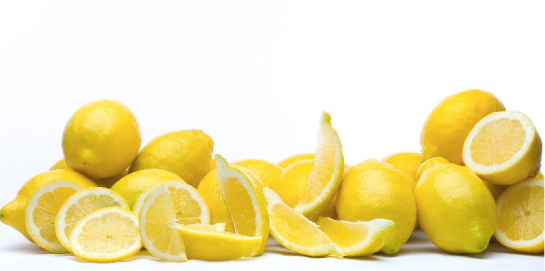LEMON
Lemon essential oil is cold pressed from the rind of Citrus limon,
a 20-foot tree with highly scented blossoms and lemon fruits.
Lemon essential oil promotes clarity of thought and purpose
and has a purifying citrus scent that is invigorating, enhancing,
and warming and is known as one of the most fragrant essential
oils. Lemons were used in Europe as early as 200 A.D. and were
introduced to the Americas by Christopher Columbus in 1493.
Lemon contains d-limonene, an antioxidant that has been linked
to healthy immune system function. Studies show that inhaling
lemon can actually counter occasional feelings of depression.*
Lemon is also an important ingredient in natural cosmetics
that may be useful for cleansing the skin and reducing the
appearance of wrinkles.
This wonder oil, not only readily available, tasty, great smelling and relatively cheap may have the potential to change your mood, immunity and over time, physiological well being?
Research:
Dr. Jean Valnet, M.D., the vaporized essence of lemon can kill Meningococcus bacteria (a cause of meningitis) in 15 minutes, Typhoid bacilli (causes typhoid fever) in one hour, Staphylococcus aureus (Disease-associated strains often promote infections by producing potent protein toxins, and expressing cell-surface proteins that bind and inactivate antibodies. The emergence of antibiotic-resistant forms of pathogenic S. aureus (e.g. MRSA) is a worldwide problem in clinical medicine.) in two hours, and Pnuemococcus bacteria (causes pneumonia) within three hours. Even a 0.2% solution of lemon can kill diphtheria bacteria in 20 minutes and inactivate tuberculosis bacteria.
From, “The role of the self in healthy cancer survivorship: a view from the front lines of treating cancer”, by Keith I. Block, M.D. In an article in Advances, Jrn. of Mind-Body Health, Keith Block, M.D., well known in the cancer field, writes about effective, alternative cancer therapies, “Consider the chemopreventive activity of limonene, a monocyclic monoterpene found in the essential oils of citrus fruits, spices, and herbs. As recently reviewed by Crowell and Gould (1994), limonene induces both phase I and phase II enzymes, resulting in hepatic (liver-related) detoxification of carcinogens and increased carcinogen excretion. Limonene may also block tumor promotion and progression (Haag et al. 1992a), [and] the complete regression of mammary carcinomas by limonene and its metabolites appears to involve tissue re-differentiation and induction of programmed cell death (apoptosis), an integral part of normal biologic processes (Haag, et al. 1992b)” (Advances, Winter 1997, Vol.13, No.1; a publication of the Fetzer Institute).

You must be logged in to post a comment.